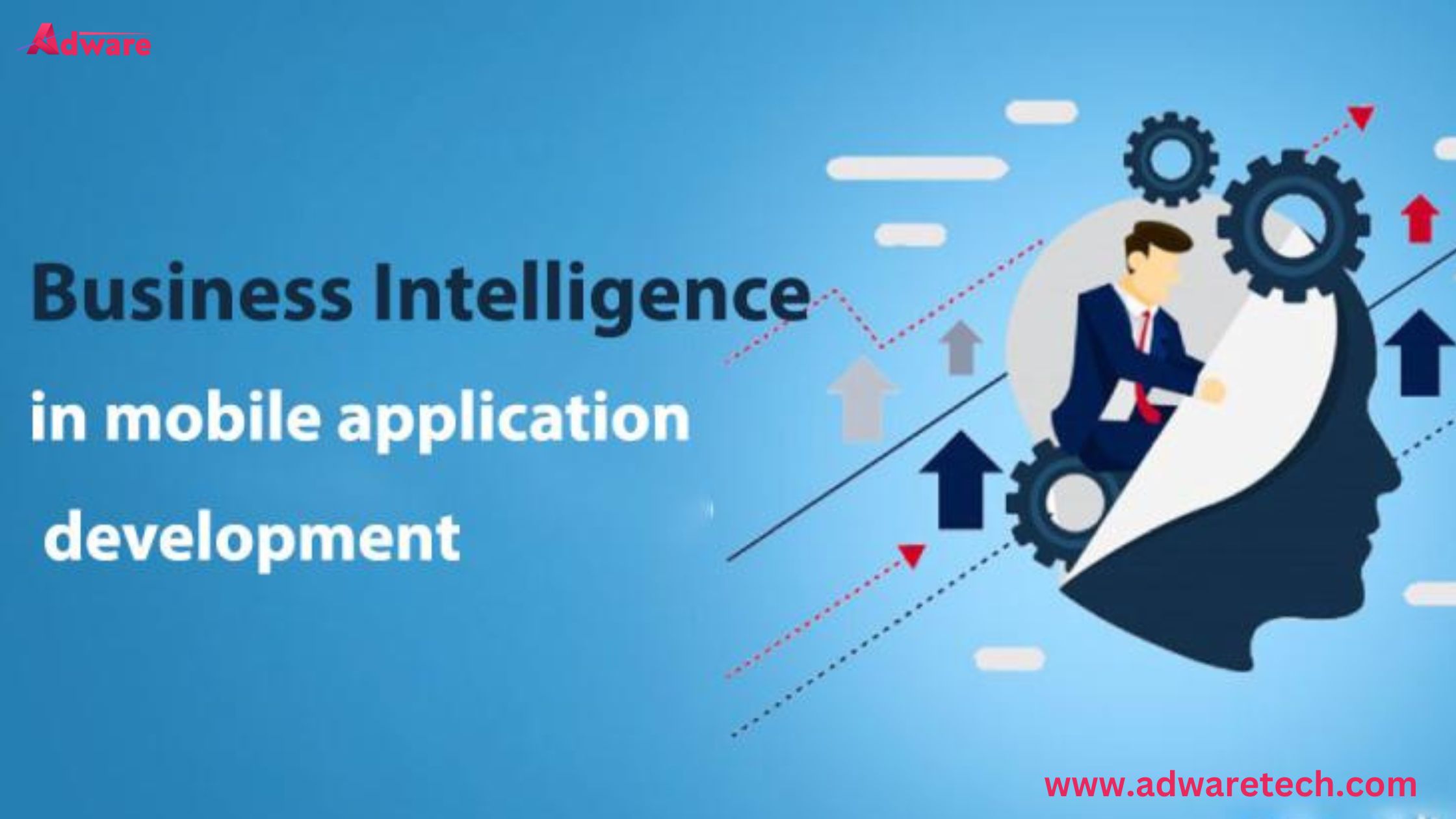In today's rapidly evolving digital landscape, mobile applications have become an integral part of our lives. From managing daily tasks to connecting with others, these apps serve a multitude of purposes. As the demand for seamless user experiences grows, integrating Business Intelligence (BI) into mobile application development has emerged as a game-changer. In this blog post, we will explore how Business Intelligence is transforming the mobile app development landscape and why it's crucial for developers to embrace this trend.
Understanding Business Intelligence in Mobile Apps
Business Intelligence encompasses the technologies, processes, and strategies that empower businesses to make informed decisions by analyzing and interpreting data. In the context of mobile app development, BI involves collecting, processing, and presenting data from various sources within the app ecosystem to drive meaningful insights and enhance user experience.
What is Mobile Business Intelligence?
Mobile Business Intelligence (Mobile BI) refers to the utilization of business intelligence tools and technologies on mobile devices such as smartphones and tablets. Business intelligence, often abbreviated as BI, encompasses the processes, technologies, and tools used to gather, analyze, and present data to aid in making informed business decisions.
Mobile BI extends these capabilities to mobile platforms, enabling users to access and interact with business data and insights while on the go. This allows decision-makers, executives, and other stakeholders to stay connected to critical information no matter where they are, enhancing the speed and effectiveness of decision-making processes.
Key aspects of Mobile Business Intelligence include:
1. Data Accessibility: Mobile BI provides users with the ability to access real-time or near-real-time business data from various sources such as databases, data warehouses, and cloud services. This enables users to make informed decisions without being limited by their physical location.
2. Data Visualization: Mobile BI platforms offer data visualization tools that help present complex business data in easy-to-understand graphical formats, such as charts, graphs, and dashboards. This visualization aids in quickly comprehending trends, patterns, and insights from the data.
3. Interactivity: Mobile BI solutions allow users to interact with the data by drilling down into specific details, filtering data based on criteria, and performing data analysis directly on their mobile devices.
4. Collaboration: Mobile BI supports collaboration among team members by enabling the sharing of reports, dashboards, and insights. This fosters effective communication and decision-making among stakeholders, even when they are geographically dispersed.
5. Alerts and Notifications: Mobile BI applications can send alerts and notifications to users when predefined thresholds or conditions are met. This ensures that critical changes or events are promptly brought to the attention of decision-makers.
6. Offline Access: Some Mobile BI tools provide offline access to cached or downloaded data, allowing users to access and work with data even when an internet connection is unavailable.
7. Security: Mobile BI platforms prioritize data security, often incorporating features like encryption, user authentication, and role-based access control to safeguard sensitive business information.
8. Device Compatibility: Mobile BI solutions are designed to work across a range of mobile devices, operating systems, and screen sizes, ensuring a consistent user experience regardless of the device being used.
Advantages of Mobile Business Intelligence
Mobile Business Intelligence (Mobile BI) offers several advantages that can greatly benefit businesses and decision-makers. Here are some of the key advantages:
1. Real-time Insights: Mobile BI allows users to access real-time or near-real-time data on their mobile devices. This enables decision-makers to stay updated with the latest information, which is crucial for making timely and informed decisions.
2. On-the-Go Access: With Mobile BI, users can access business data and insights from anywhere, whether they are in the office, on a business trip, or even during their commute. This level of accessibility enhances productivity and responsiveness.
3. Faster Decision-Making: Mobile BI empowers decision-makers to quickly analyze data and generate insights on their mobile devices. This speedier decision-making process is particularly valuable in fast-paced industries where opportunities and challenges arise rapidly.
4. Data Visualization: Mobile BI platforms offer interactive data visualization tools that make it easier to understand complex data sets. Visualizations like charts, graphs, and dashboards allow users to quickly identify trends, patterns, and anomalies, aiding in faster comprehension.
5. Collaboration and Sharing: Mobile BI facilitates collaboration by allowing users to share reports, dashboards, and insights with team members and stakeholders. This enhances communication and ensures that everyone is on the same page.
6. Improved Productivity: Mobile BI reduces the need for users to be tethered to their desks. They can continue to work and make decisions even when away from their computers, leading to improved overall productivity.
7. Quick Response to Changes: Mobile BI enables decision-makers to respond swiftly to changes in the business environment. Whether it's a sudden market shift or an operational issue, having access to real-time data on a mobile device enables timely responses.
8. Customization and Personalization: Many Mobile BI platforms allow users to customize dashboards and reports according to their preferences. This personalization ensures that users are presented with the most relevant data for their roles and responsibilities.
9. Offline Access: Some Mobile BI applications provide offline access to cached data. This is particularly useful when users are in areas with limited or no internet connectivity, ensuring they can still access and work with critical information.
10. Cost Savings: Mobile BI can reduce the need for printing physical reports and distributing them to decision-makers. By enabling digital access to data, businesses can save on printing costs and reduce environmental impact.
11. Competitive Advantage: Organizations that embrace Mobile BI can gain a competitive edge by making faster, more informed decisions. This can lead to better strategic planning, improved customer service, and a more agile response to market changes.
12. Employee Satisfaction: Providing employees with the flexibility to access business data on their mobile devices can contribute to higher job satisfaction, as it allows them to work more efficiently and effectively.
Challenges in Mobile Business Intelligence
Mobile Business Intelligence (Mobile BI) offers numerous benefits, but it also presents certain challenges that organizations need to address to fully capitalize on its potential. Here are some of the key challenges associated with Mobile BI:
1. Data Security and Privacy Concerns: Mobile devices are more susceptible to security breaches and data leaks. Ensuring the security of sensitive business data on mobile devices, especially when data is being accessed outside the organization's network, is a critical challenge.
2. Device and Platform Fragmentation: The wide variety of mobile devices, operating systems, and screen sizes makes it challenging to develop and optimize Mobile BI applications for consistent user experiences across all devices and platforms.
3. Data Visualization Complexity: While mobile screens are getting larger and more high-resolution, they still present limitations in terms of space for displaying complex visualizations and detailed reports. Designing effective visualizations that convey insights without overwhelming users can be a challenge.
4. Limited Processing Power and Memory: Mobile devices typically have less processing power and memory compared to desktop computers. Analyzing and manipulating large datasets on mobile devices can lead to performance issues and slower response times.
5. Offline Access and Syncing: Providing offline access to data can be challenging, especially when users need to access real-time or near-real-time data. Ensuring that data is synced accurately when the device reconnects to the network can be complex.
6. Usability and User Experience: Designing user-friendly interfaces for mobile devices is critical. Mobile BI applications need to strike a balance between providing the necessary functionality and maintaining a simple, intuitive user experience.
7. Network Connectivity and Speed: Mobile BI heavily relies on network connectivity. Slow or unstable connections can lead to delays in accessing and analyzing data, affecting the user experience and decision-making process.
8. Integration with Existing Systems: Integrating Mobile BI with existing enterprise systems, data sources, and databases can be challenging due to differences in data formats, structures, and technologies.
9. Data Quality and Consistency: Ensuring that the data accessed on mobile devices is accurate, consistent, and up-to-date across all devices can be complex, especially when dealing with data from various sources.
10. User Training and Adoption: Introducing Mobile BI to an organization requires proper user training to ensure that employees can effectively use the tools. Some users might be resistant to change or unfamiliar with the technology.
Best Practices for Implementing BI in Mobile App Development
1. Define Clear Objectives: Determine the specific goals you aim to achieve through BI integration. Whether it's improving user engagement, boosting app performance, or increasing revenue, a clear focus will guide your implementation strategy.
2. Choose the Right BI Tools: Select BI tools that align with your app's requirements and scalability. Consider tools that offer real-time analytics, customizable dashboards, and integration capabilities with your app's data sources.
3. Data Security and Privacy: Ensure that user data is collected and stored in compliance with data privacy regulations. Implement robust security measures to protect sensitive information and build user trust.
4. User-Friendly Visualization: BI data is most valuable when presented in a comprehensible manner. Use intuitive charts, graphs, and visualizations to convey insights to users effectively.
5. Continuous Monitoring and Iteration: BI implementation is an ongoing process. Continuously monitor app metrics, gather user feedback, and iterate your strategies to enhance the user experience and achieve your objectives.
Conclusion:
In conclusion, mobile Business Intelligence (BI) has emerged as a transformative force in the business landscape, offering organizations the ability to access, analyze, and utilize critical data on the go. This technology has revolutionized decision-making processes by providing real-time insights to key stakeholders, enabling them to make informed choices regardless of their location.
The adoption of mobile BI has brought about several key benefits. Firstly, it enhances agility and responsiveness within organizations, as decision-makers can quickly access relevant information and respond to changing market conditions promptly. Secondly, it promotes collaboration and data-driven discussions, allowing teams to work together seamlessly despite geographical barriers. Additionally, mobile BI empowers employees at all levels to contribute to data-driven strategies, fostering a culture of informed decision-making.




Comments (0)